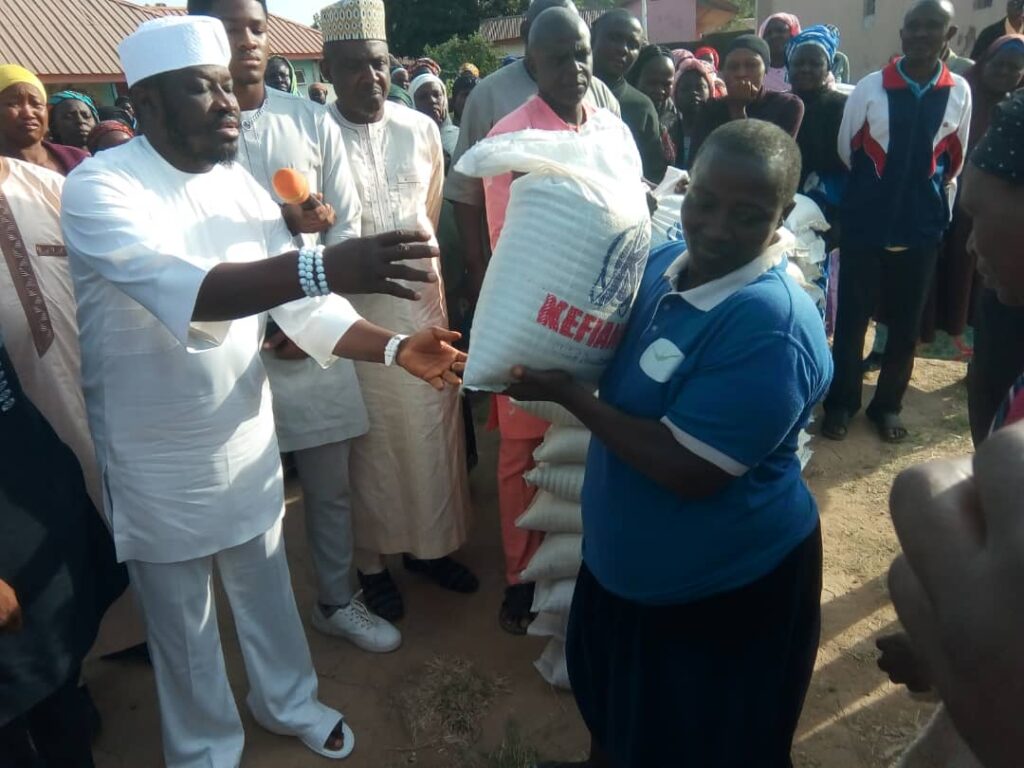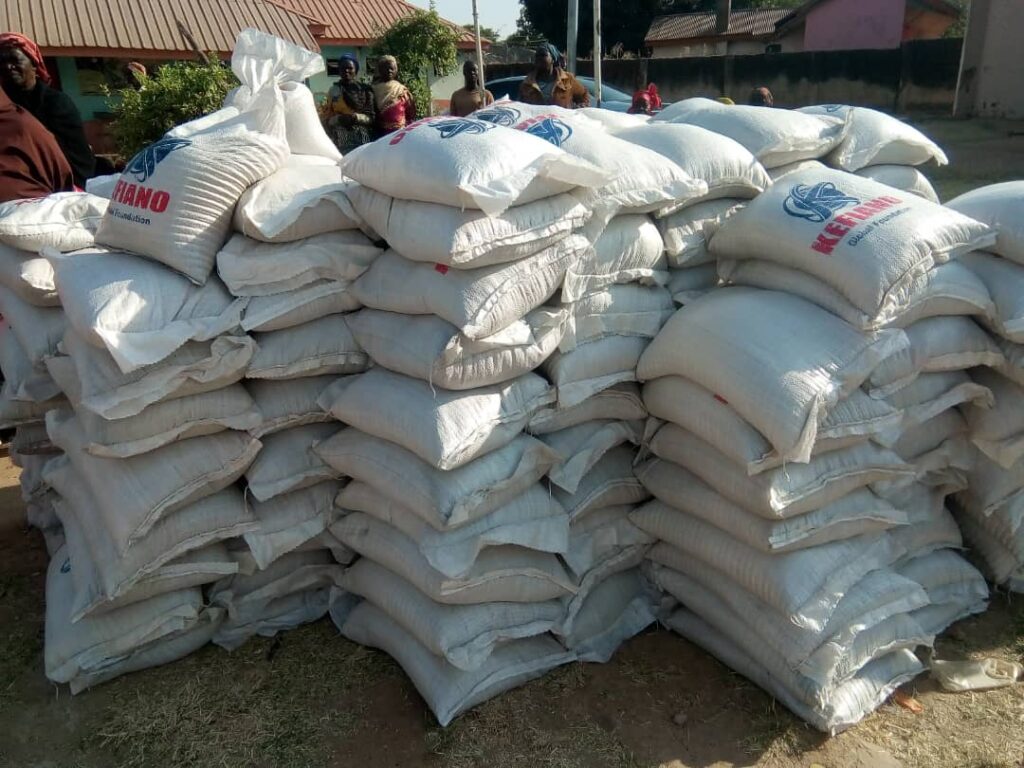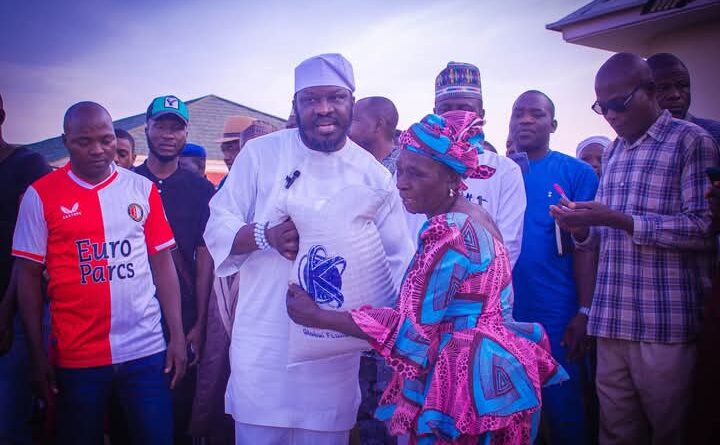Chief Kefas Wungak Ropshik has once again demonstrated his deep commitment to supporting the vulnerable, this time by extending his generosity to widows, orphans, and the elderly across the communities of Pankshin, Kanke, and Shendam. His philanthropic efforts, which have been ongoing for years, are focused on alleviating the hardships faced by these groups. Chief Ropshik, who made the donation during a gathering at a local church, emphasized that his mission is not political but a personal calling to help those in need.
In his address, Chief Ropshik reflected on the difficulties his farming project had encountered this year. Despite cultivating 130 hectares of rice, the harvest was not as fruitful as expected due to unforeseen issues, leaving him with less produce to donate. Nonetheless, he remained optimistic, stating, “Though the rice crop failed, we still managed to bring something to share with the widows and orphans. Our prayer is that this small contribution will help sustain them through these challenging times.”
Chief Ropshik’s philanthropy has deep roots in his belief that caring for the vulnerable is a divine obligation. He emphasized that his efforts to support widows and orphans over the years have not been for recognition or political gain, but out of a genuine desire to uplift those in need. “It’s not politics; it’s a gift that God has given me to take care of widows, and I will continue to do so,” he said.

Acknowledging the harsh economic realities currently facing many Nigerians, Chief Ropshik expressed his hope that the little support he could provide would make a difference in the lives of those who received it. He offered a heartfelt prayer that God would continue to open more doors of opportunity for these families. “We know the hardship that is happening now, but our prayer is that this small gesture will sustain them before more help comes their way,” he added.
One of the key messages from Chief Ropshik’s speech was his hope for the younger generation. He prayed for the children of the widows and elderly present, asking for God’s guidance in making them responsible individuals who would grow up to take care of their parents. “Every parent’s prayer is that their children become reasonable and support them in their old age. This is also my prayer for all of you,” he said.
In addition to the immediate donations of food items like rice, Chief Ropshik outlined a long-term plan to provide more sustainable support to widows. He announced his intention to introduce entrepreneurial training programs for widows, helping them become self-reliant. “By the end of March, we hope to start training widows in small businesses, providing them with startup capital so they can support themselves without waiting for handouts,” Chief Ropshik revealed.
He acknowledged that while providing food is essential, it is not a long-term solution. His vision is to empower these women to generate income through entrepreneurship, which would give them the ability to take care of their families independently. This, he said, would help them achieve financial stability and improve their overall well-being.
Chief Ropshik extended his gratitude to the local church for consistently providing the space for his charitable activities. He expressed his desire to continue partnering with the church in these efforts, praising the institution for its role in supporting the community. “Thank you for the environment you have provided for us to reach these widows and orphans. We will continue to work together to touch more lives,” he said.
As the event came to a close, Chief Ropshik urged the church elders to ensure the rice distribution was done fairly and without incident. He emphasized the importance of handling the donations with care and wisdom to avoid any conflicts or injuries during the process. “I don’t want to hear that anyone was injured while collecting rice. Let us share it wisely and peacefully,” he reminded them.
Chief Kefas Wungak Ropshik’s ongoing efforts to support the widows, orphans, and elderly in his community have left a lasting impact. His dedication to improving their lives, combined with his plans for long-term entrepreneurship training, highlights his commitment to ensuring that these vulnerable groups can rise above their current circumstances and become self-sufficient in the future.








